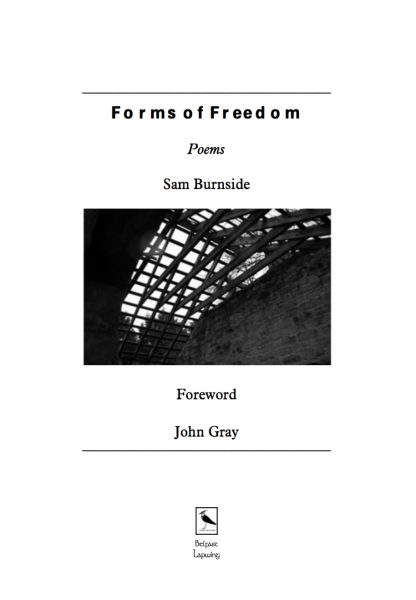New and Selected Poems
by Sam Burnside
Published through Subscription Publishing
Publication date 2nd January 2013
£9.99
by Sam Burnside
Published through Subscription Publishing
Publication date 2nd January 2013
This selection contains work drawn from six previous publications together with more recent poems, including a Bestiary or suite of animal poems.The former draws heavily on the landscape of the north of Ireland, while the later is influenced by the form, content and tone of a tradition familiar since the Middle Ages when it was commonly believed that the natural world, the so-called ‘book of nature’, had been arranged, in the way it was, by God to provide a source of instruction to humanity.
The result is a body of poetry that locates and sympathetically explores human experience in the context of a vividly realised world of nature.
Subscription publishing was a generally accepted method of publication during the seventeenth century when it was popular in Ireland. There are numerous examples of Belfast and Londonderry printed and published books. It was, in essence, a partnership between author and reader, with the ‘middleman’ (agent, publisher and bookseller) having little or no role. As a way of acknowledging the subscribers’ support and involvement authors included printed lists of their names in the work, often in place of or in addition to a dedication.
The works typically sold by subscription in the seventeenth century were atlases, geographies, and histories, especially Bible histories. But important works of English literature were also published in this manner. Among them was, for example, the first illustrated edition of Milton’s Paradise Lost, published by the great London publisher, Jacob Tonson in 1688. Its subscriber list names more than five hundred prominent individuals.
This volume contains a list of the names (together with town of residence) of subscribers who have supported its publication. This will be a tangible expression of a real and active interest in literature, in sympathy with the long tradition of poetry (from the time of Columcille through to the present day) that marks our cultural history. Your support will stand as an affirmation of this as we enter into the 2013 Year of Culture. It is a statement of the importance of direct and personal involvement in creative endeavour.
Burnside writes vigorously about the Northern landscape, its savage beauties, its people, and the ubiquitous rumblings of its past. He is frequently described as ‘the truest heir’ to John Hewitt, and there is immediacy in his verse that is firmly planted in a wider observance, as in ‘Foyle’ where his description of trees along a riverbank indicts the failure of the land to sustain its people. – Dictionary of Irish Literature, Hogan, 1996
